Zoo faces animal welfare and bullying allegations
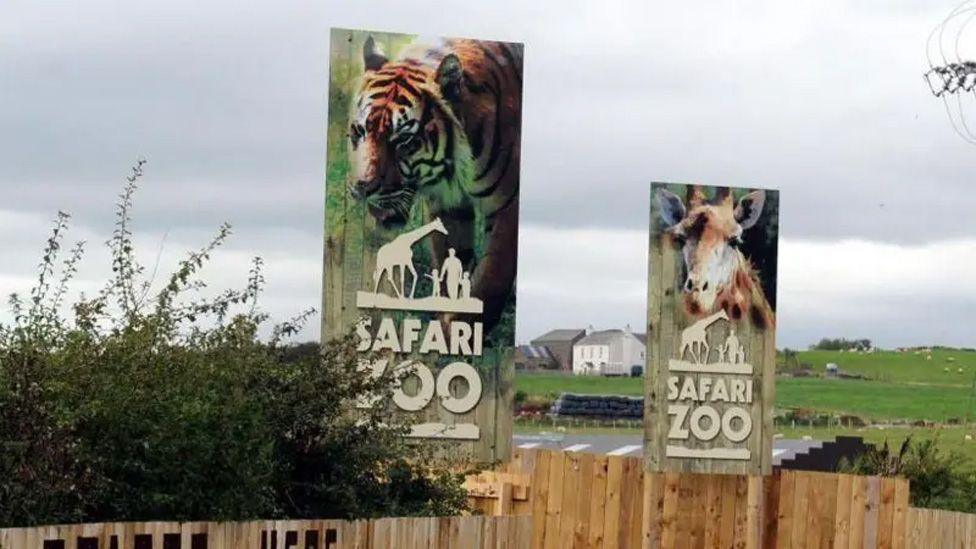
New management took over South Lakes Safari Zoo in 2017, promising a change of culture
- Published
A BBC investigation has heard allegations of avoidable animal deaths, welfare issues and a bullying culture at a zoo where a keeper was mauled to death in 2013.
South Lakes Safari Zoo in Cumbria was taken over by a new board of directors in 2017, who promised to change things for the better.
But former employees, who said they continued to have serious concerns about conditions at the zoo, have shown the BBC photos and videos which they say depict injuries and fatalities to animals.
Zoo bosses deny "each and every allegation" and point to dozens of positive, independent inspections.
Warning: This article contains images of injuries to animals some readers may find distressing.
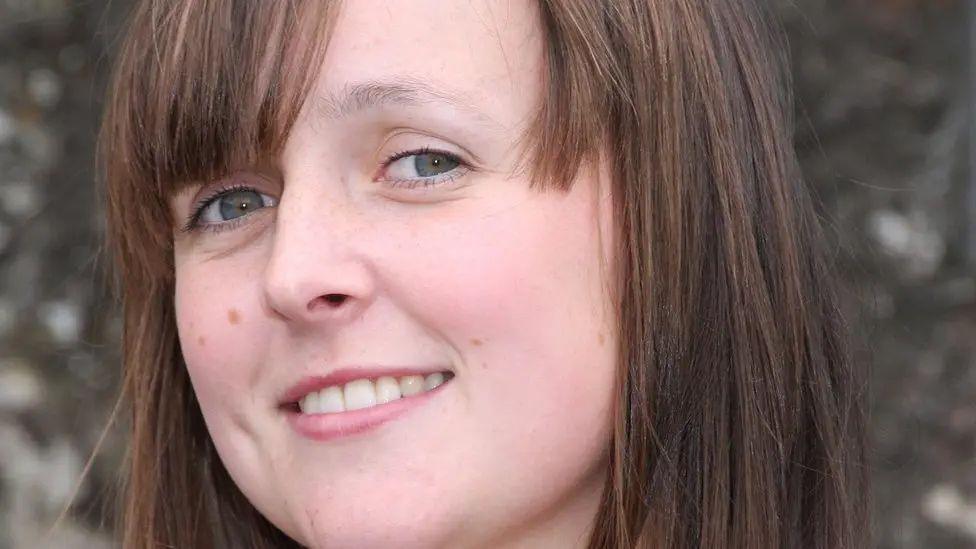
Keeper Sarah McClay was killed by a tiger at South Lakes in 2013
South Lakes, which has had a troubled past, hails itself as a haven for exotic animals.
The attraction at Dalton-in-Furness was threatened with closure in 2017 while under the ownership of David Gill. The RSPCA launched an investigation and the Captive Animals’ Protection Society urged the local council to revoke the zoo's licence following a series of animal fatalities and other failures.
In that year, Mr Gill was refused a licence and a new operator, Cumbria Zoo Company Limited (CZCL), was formed from the old owner’s board of directors. It promised improvements, won praise from inspectors for a "change of culture" and remains in charge to the present day.
When it took over the zoo, the new company's chief executive Karen Brewer told the BBC the board had made "dramatic changes".
But six people who worked at South Lakes at various times between 2017 and 2022, speaking to the BBC on condition of anonymity, all say major problems persisted. Their claims are denied by CZCL.
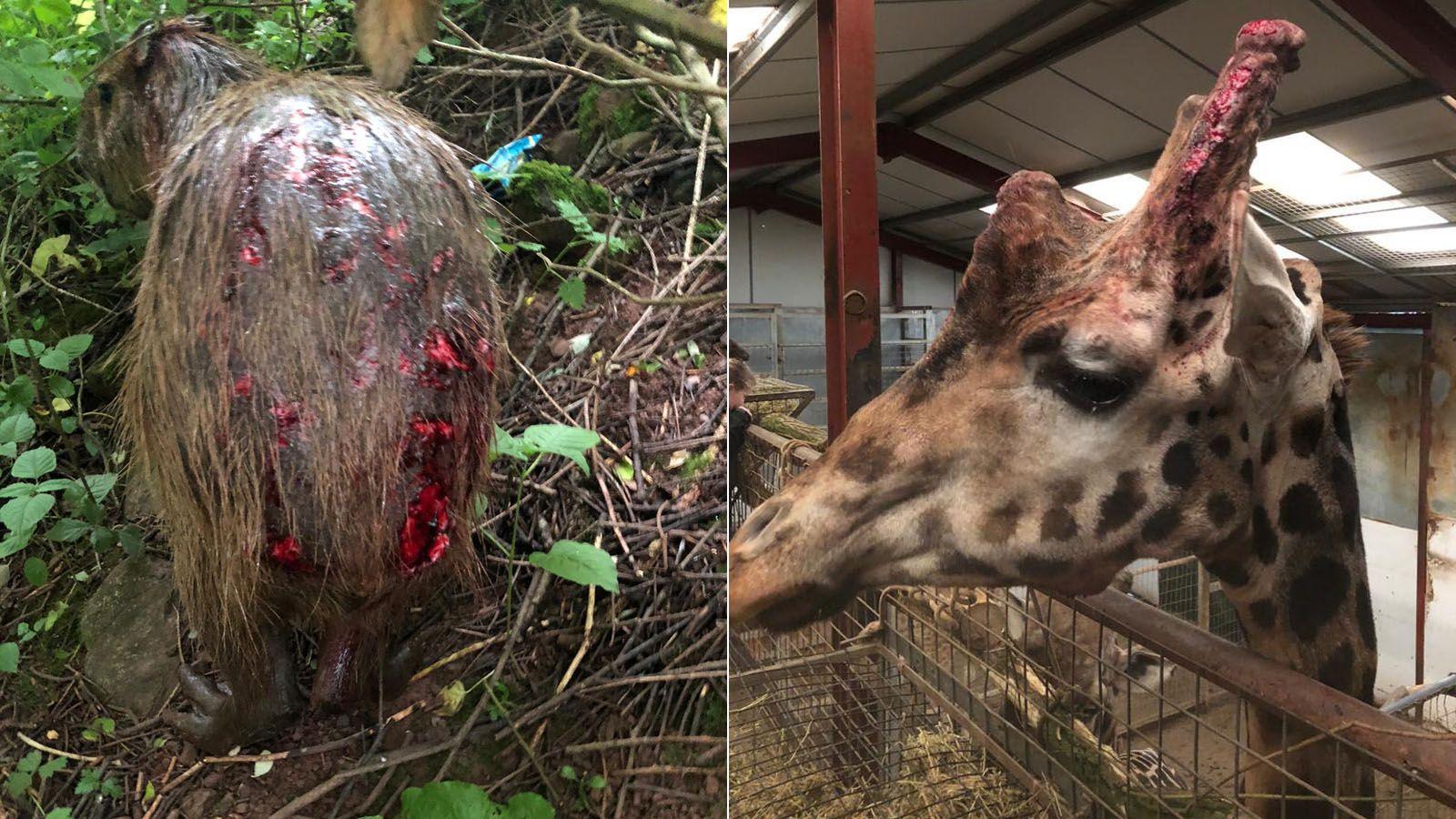
Former staff showed the BBC pictures of injured animals, including this capybara and a giraffe
"Nothing changed under this new management and animals suffered greatly," said a former worker who we are calling Jane.
She left in 2019 having witnessed animal deaths that "could have been avoided", months before a council inspection raised no concerns.
The BBC has seen almost 60 photographs and videos which have not previously been made public. They were taken between 2017 and 2019 by staff who say they include:
A zebra lying injured on the floor with its hoof stuck in the bars of its pen. Ex-staff claimed it was stressed after being kept indoors, while management ignored the keeper's advice to let it out. It was later put down;
A capybara covered in cuts caused by fighting in overcrowded spaces;
A giraffe with a bloodied head from injuring itself on the bars of its pen during public feeding sessions.
"Fighting" and "inbreeding" were common because "animals were housed in inappropriate social groups", Jane said.
"Overstocking of animals led to persistent bullying… severe injuries and often deaths."
Mark, who worked at South Lakes in 2022, said some animals would have meals restricted "so they'd be hungry for guests to feed them".
"It means their diets weren't very balanced because they'd feed them more treat-like foods.
"There were cases where they were buying less healthy food for the animals just because it was cheaper."
He claimed avoidable deaths occurred, adding: "A peacock flew into the giant otter enclosure and the two giant otters ripped its head off in front of a school group."
CZCL said it "wholly denied and disputed" it had ever "engaged in any practices which has led to the death, injury or poor treatment of animals".
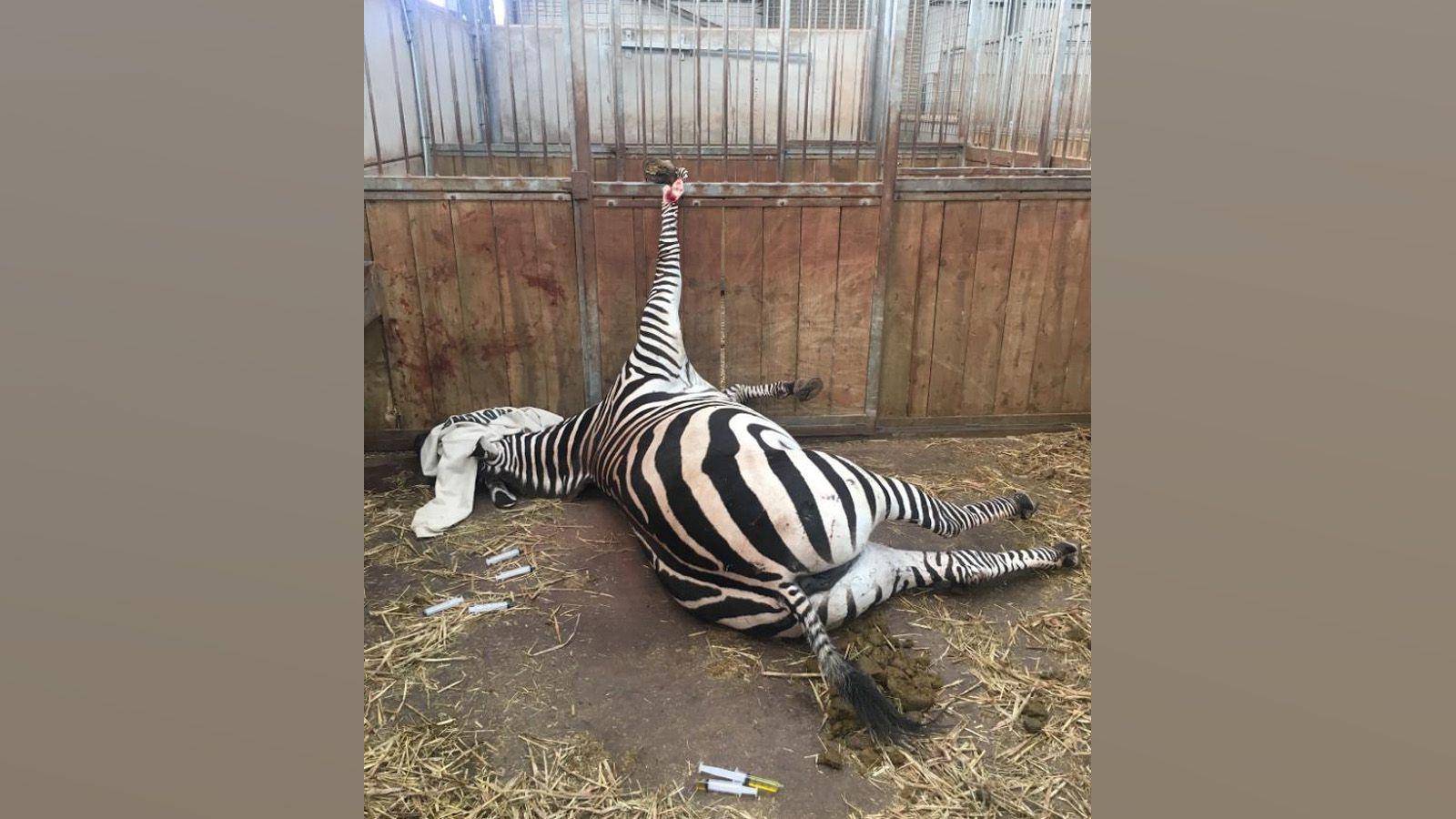
Another picture shown to the BBC shows a zebra with its hoof caught in bars
The BBC also heard allegations of a bullying culture and high staff turnover.
"Staff were broken at times, completely broken," according to a former employee we have named James.
"There was shouting at people and belittling people. The morning meeting turned into isolating and humiliating people."
Jane agreed, adding: "There was shouting over the radio and everyone could hear it. I wasn't junior staff and I felt awkward.
"I saw staff in tears, I saw staff leaving regularly."
CZCL said: "We do not accept that there is a 'bullying culture' or that staff are overworked.
"We take any allegations of bullying extremely seriously, and when they are made they need to be fully investigated and dealt with."
The company said it had to make improvements after taking over the zoo because staff were not properly trained, but it "did not create a toxic or unhealthy culture".
Ms Brewer said: "These malicious claims are a direct result of an ongoing campaign against us by Zoo Investment Company (ZIC), which stretches back more than three years, to unlawfully undermine and disrupt the running of the zoo."
She is referring to a bitter legal battle with ZIC, the landowner, which wants control of the park. The dispute has, according to council inspectors, contributed to problems at the zoo.
While CZCL operates the attraction and holds the licence, ZIC owns the land on which it sits. Separately, both companies own animals housed and exhibited at South Lakes.
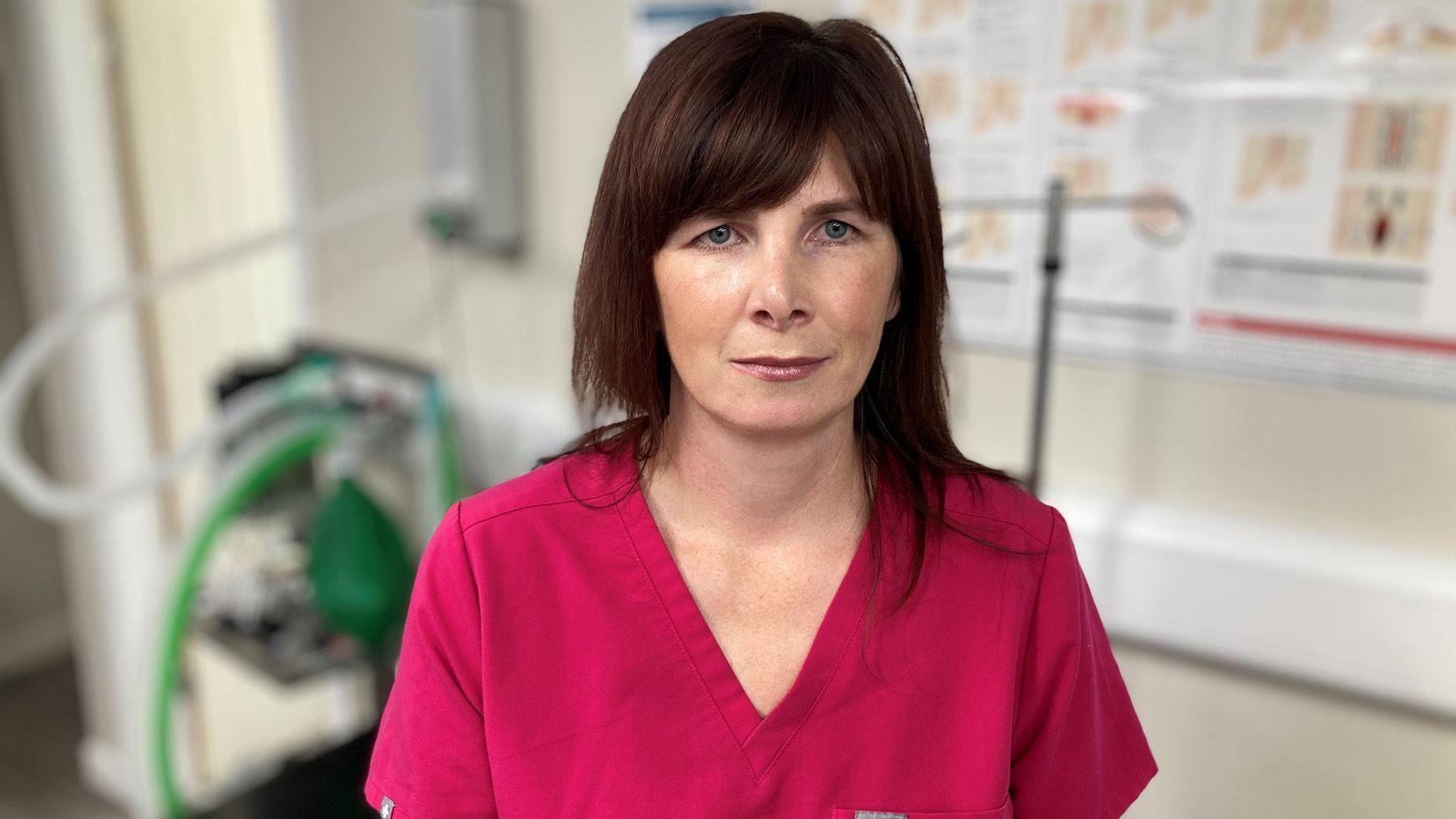
Dr Kate Hornby, a vet who carries out inspections for the company which owns the land on which South Lakes sits, says she feels "helpless"
Dr Kate Hornby, a vet currently hired by ZIC to carry out weekly health checks only on the exhibits it owns, claims sometimes animals "have no water, sometimes they have no food".
She said some of the rhinos are kept indoors for long periods in "dirty pens with very little bedding".
"You see behavioural changes," according to Dr Hornby, "pacing and aggression, because they're so frustrated.
"You question why and how can this go on this long. I feel helpless."
In a statement, Ms Brewer responded: "The zoo is subject to regular inspections by local authority inspectors and if there were issues of the sorts described, they would have been addressed by the inspectors.
"We keep comprehensive records of all animal injuries. As a licensed zoo, animal welfare is our prime concern and we dispute these allegations.
"We find these claims to be outrageous and have no substance in fact. Our veterinary team are internationally recognised and unrivalled in their field."
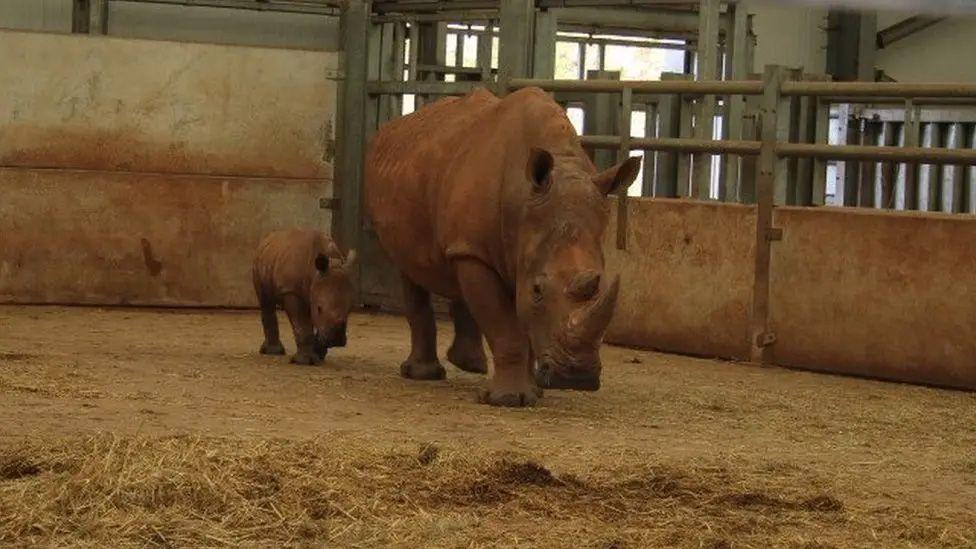
Council inspectors raised concerns about the welfare of rhinos at the zoo earlier this year
An unannounced inspection in March this year by Westmorland and Furness Council did raise similar welfare concerns, expressing a belief rhinos had been kept indoors for more than 17 hours straight.
The subsequent report said: "Rhinoceros were over stocked, they had insufficient grazing and individuals were often confined inside or outside for excessive periods."
Other findings included "senior staff may be spread too thin" and a lack of investment "may lead to failings in managing the animals properly, with subsequent welfare problems and potential danger to animals, staff and the public".
Inspectors said it was "extremely concerning" to find a work experience student left unsupervised with dangerous animals.
A further inspection in April raised "grave concerns" and found standards had dropped over the previous three years.
But by June, the council conducted a follow-up "visit" and reported 26 of 28 improvement directions were being complied with.
Just months after ordering significant improvements, a council spokesperson told the BBC: "While the issues noted in these most recent inspections have resulted in conditions and directions, it was also noted by inspectors that, with greatly reduced numbers of animals and an excellent veterinary programme, there was no evidence of the serious systemic animal health and welfare problems that characterised the collection in the past."
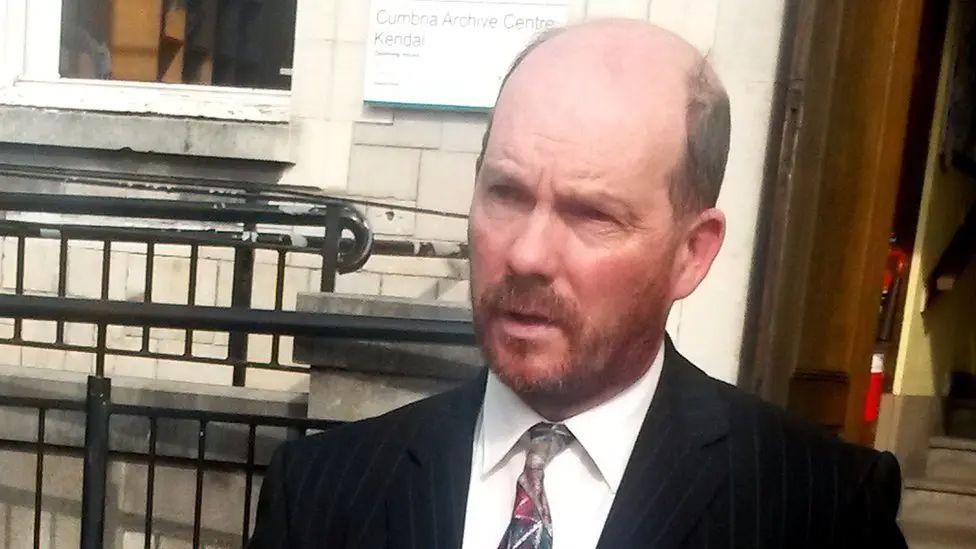
Former South Lakes owner David Gill was refused a licence in 2017 after a series of problems at the zoo
That past has been marked by safety issues, welfare fears and the avoidable death of 24-year-old keeper Sarah McClay.
Opened in 1994, three years later a white rhino escaped South Lakes and was shot. Further escapes and disturbing animal fatalities kept the zoo in the news, including the deaths of 30 lemurs in a fire in 2008.
In May 2013, Ms McClay was mauled to death by a tiger which got through an open door into the corridor where she was working.
The revelation of almost 500 animal deaths between 2013 and 2016 preceded the departure of owner David Gill and a promise from CZCL of a new and better future for the zoo, its staff and the animals in its care.
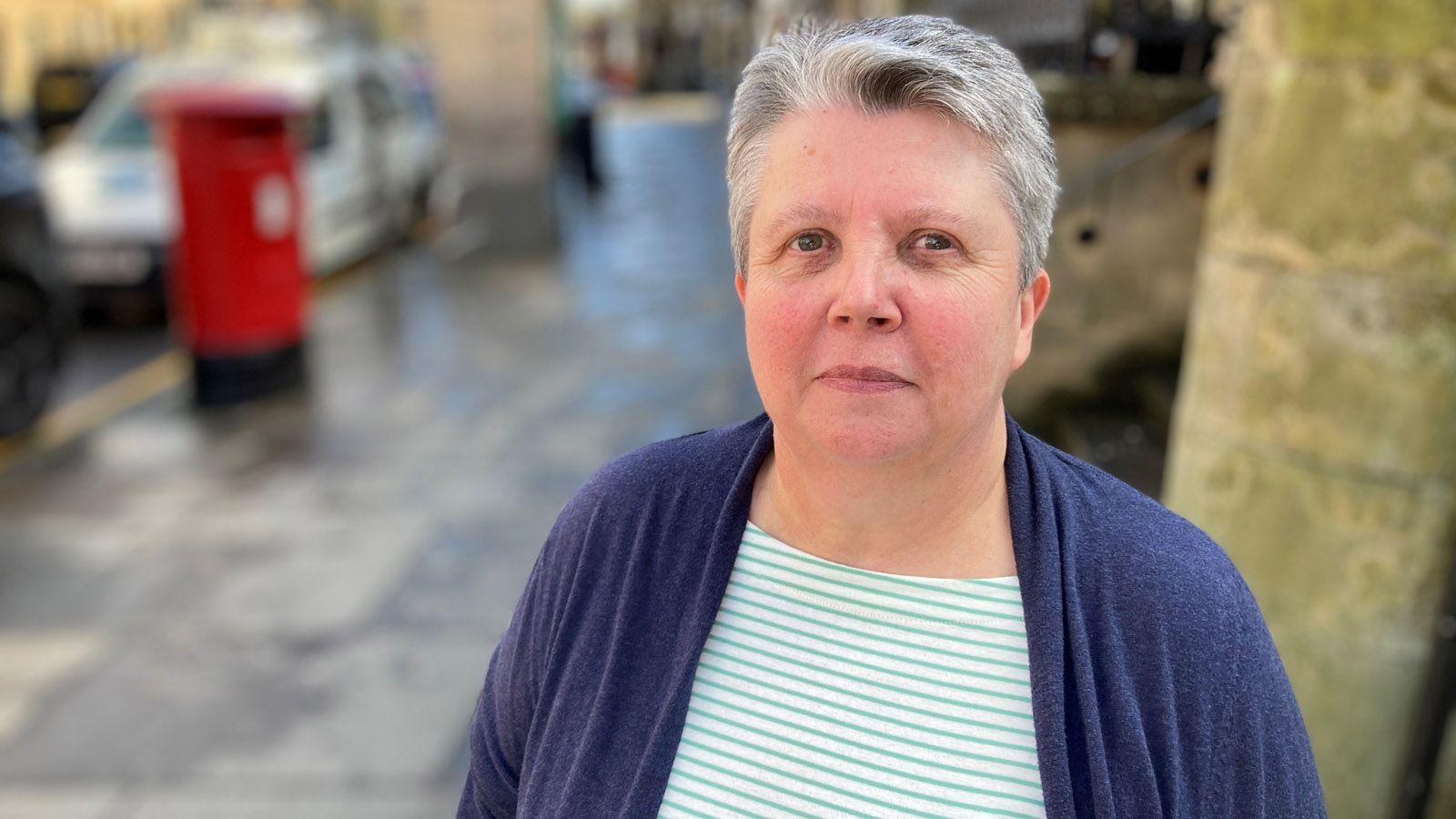
Sarah McClay's mother, Fiona, believes the zoo should have shut down in 2017
Two years ago, CZCL bought land at Brockholes Farm in Tebay and is moving some of its animals there from South Lakes. Meanwhile, the dispute with the current site’s landowner ZIC continues.
Westmorland and Furness Council previously said that dispute has "disrupted all attempts to continue a programme of improvements". ZIC denies allegations it interferes in the running of the zoo.
Meanwhile, Ms Brewer said: "To be clear, CZCL was not in ownership of the zoo at the time of Sarah McClay's death in 2013, four years before we bought the business from David Gill, and therefore it is not appropriate for us to comment.
"Since we took over in 2017, 33 independent government inspectors have visited the zoo over seven years and each have approved our standards.
"The first local authority licence was issued in 2017 for one year as standard. The next licence was issued in 2018 for four years and the latest one in May 2022 for four years.
"We think this speaks volumes about how we run the zoo and the high standards we set. Our priority at all times is the high quality of care for all of our animals."
Ms McClay's mother, Fiona, remains shocked at the continuing story of the zoo where her daughter died: "I don’t understand why things are put in place, that they do risk assessments and these inspections, if they get so many chances to put mistakes right. It should have been shut down in 2017."
Additional reporting by Calum Grewar.
Follow BBC Cumbria on X, external, Facebook, external, Nextdoor and Instagram, external. Send your story ideas to northeastandcumbria@bbc.co.uk.
Related stories
- Published24 July 2024
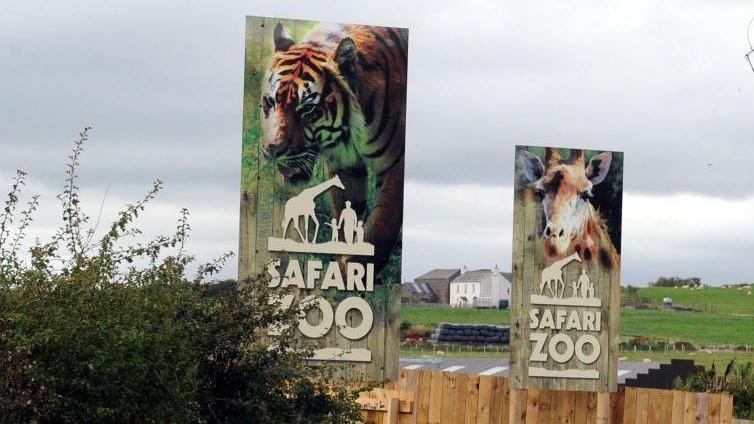
- Published17 July 2024
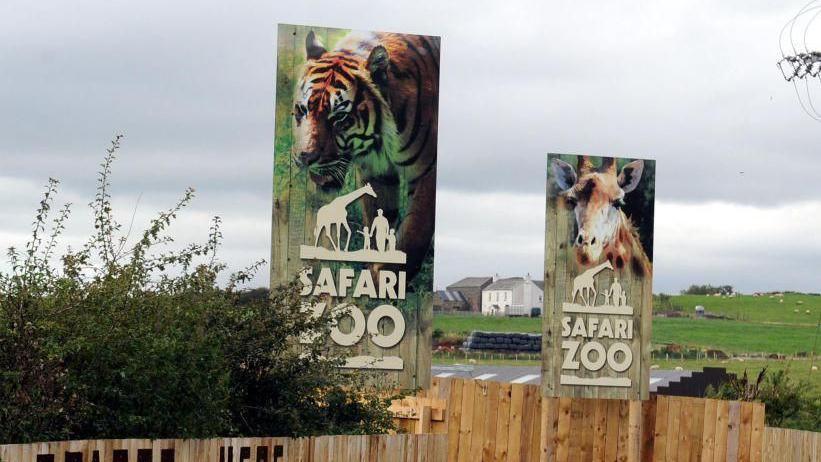
- Published11 February 2023
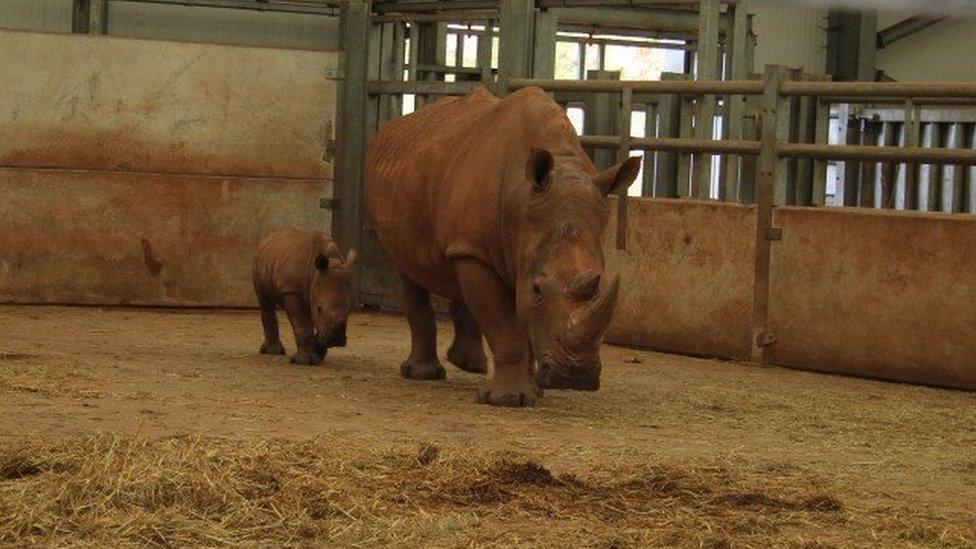
- Published23 January 2020
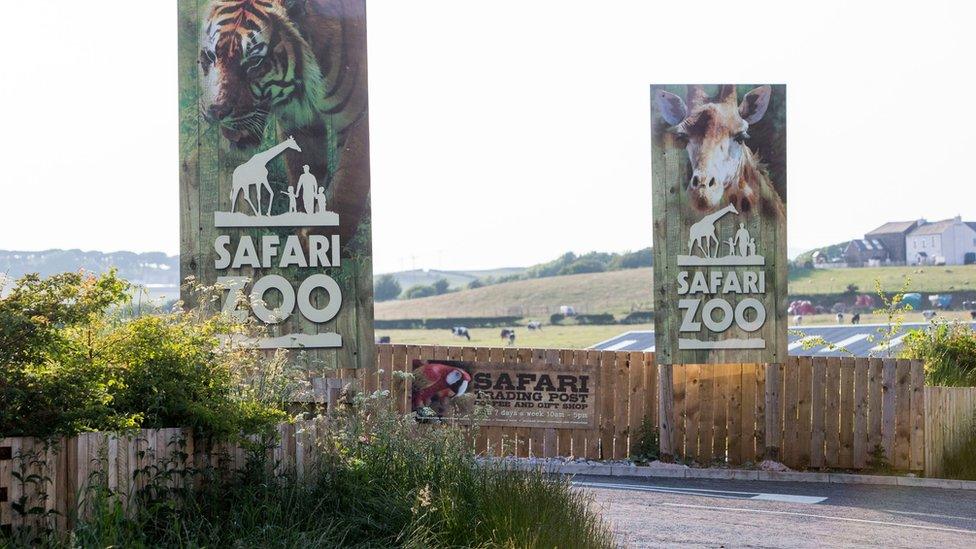
- Published6 March 2017
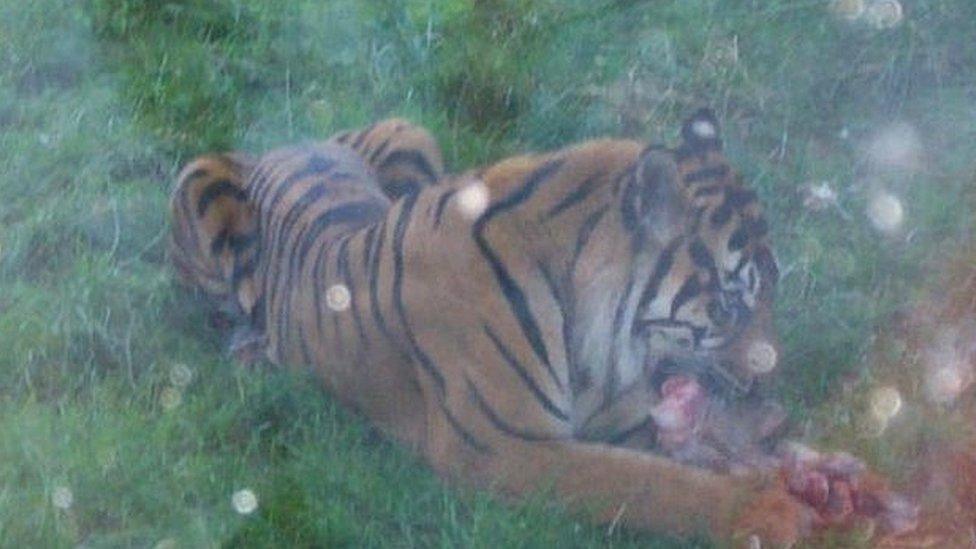
- Published28 February 2017
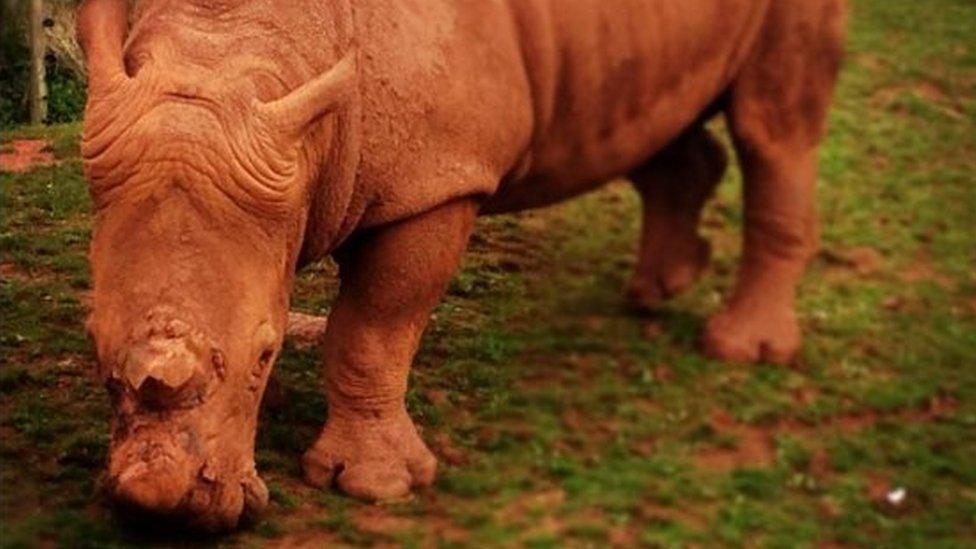
- Published10 June 2016